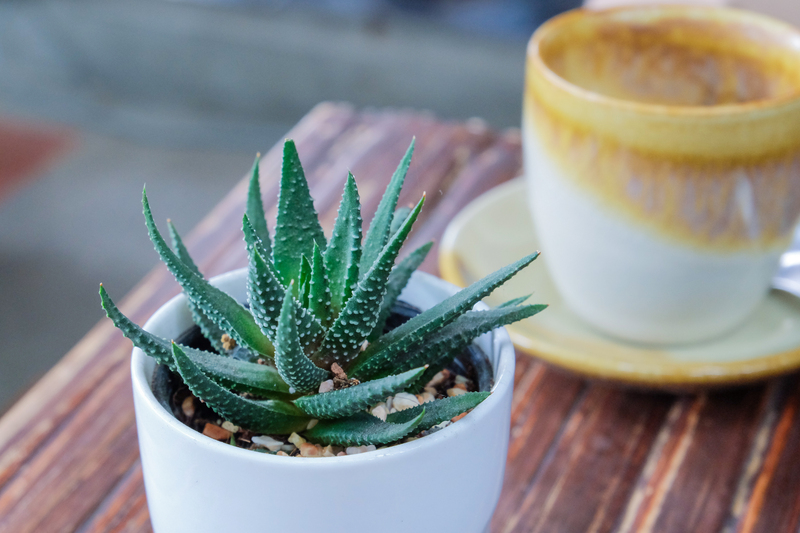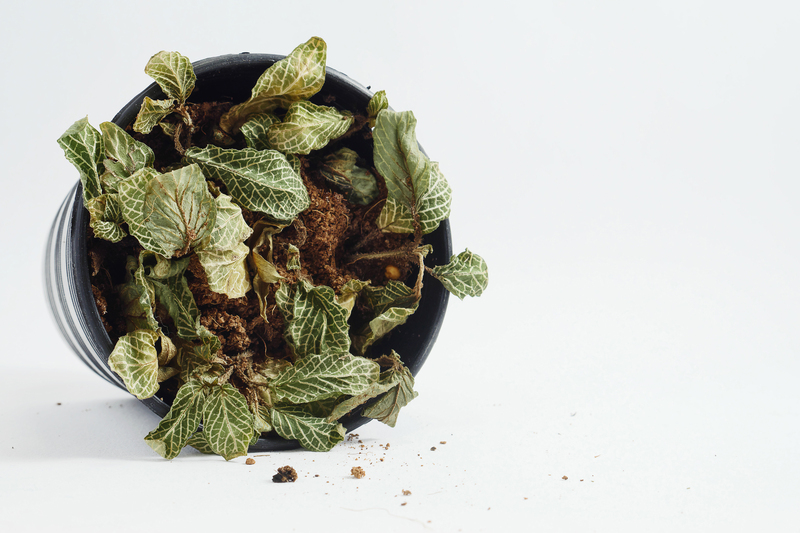From Scraps to Soil: A Journey of Organic Enrichment
Posted on 19/06/2025
From Scraps to Soil: A Journey of Organic Enrichment
Did you know your kitchen scraps can be transformed into valuable soil, reducing waste and enriching your garden? The journey from scraps to soil is an ancient, eco-friendly process known as organic enrichment. In this comprehensive article, we explore how everyday waste is turned into black gold, the sustainable benefits of composting, and how you too can create a greener world from the comfort of your home.
The Importance of Organic Enrichment
Organic enrichment refers to the process of boosting the fertility and health of soil through natural, biodegradable materials. This process is an integral part of organic gardening and sustainable agriculture. When you actively convert kitchen scraps, yard waste, and other organic leftovers into compost, you contribute to a circular system that not only reduces landfill waste but also rejuvenates the earth's soil.
- Reduces landfill waste: Composting lessens the load on landfills.
- Enriches soil: Finished compost adds nutrients and beneficial microbes.
- Cuts down greenhouse gases: Organic enrichment reduces methane emissions.
- Supports biodiversity: Healthy soil attracts earthworms and beneficial insects.
- Improves plant health: Nutrient-rich soil helps grow resilient plants.

The Science Behind Composting and Soil Fertility
At the heart of the journey from scraps to soil lies the biological miracle of composting. Composting is the natural process by which organic matter--like food scraps and yard trimmings--is broken down by microorganisms, fungi, and invertebrates. This decomposition results in a dark, crumbly material rich in nutrients known as compost or humus.
Key Elements of Composting
- Carbon and Nitrogen: Scraps such as dried leaves, branches, and paper offer carbon, while kitchen waste and grass clippings provide nitrogen. The ideal compost mix contains a balance of these elements.
- Air: Oxygen is essential for microorganisms responsible for breaking down materials.
- Moisture: Moist but not soggy conditions help the decomposition process.
- Microorganisms: Bacteria, fungi, and actinomycetes are the workhorses of compost decomposition.
When these components are combined in the right ratios, a hot compost pile can reach temperatures up to 150?F (65?C). This heat kills weed seeds and pathogens, making the finished compost safe and beneficial for soil.
The Journey: How Scraps Become Soil
Step 1: Collecting Organic Matter
Everything begins at home. Kitchen scraps suitable for composting include:
- Fruit and vegetable peels
- Coffee grounds and tea bags
- Crushed eggshells
- Bread and grains (in limited quantities)
- Shredded newspaper and cardboard (as carbon sources)
Avoid adding oily foods, dairy, meat, or diseased plants to your compost, as they attract pests and slow down decomposition.
Step 2: Creating the Compost Pile or Bin
Choose a suitable area in your backyard or balcony. Compost bins, tumblers, or plain heaps all work well, provided you heed the golden rules of organic enrichment--balance, moisture, and airflow.
- Start with a layer of coarse materials like small twigs for aeration.
- Alternate layers of green (nitrogen-rich) and brown (carbon-rich) materials.
- Keep the pile moist, like a wrung sponge.
Turn the pile every 1-2 weeks to aerate, speeding up the decomposition process and minimizing odors. After 2-6 months, you'll notice a pleasant earthy smell, signalling mature compost.
Step 3: Harvesting the Black Gold
When the compost is dark, crumbly, and smells like rich earth, it's ready. Strain out large pieces, returning undecomposed scraps to the pile. The finished product is a potent soil amendment, teeming with life and nutrients.
Differentiating Between Compost & Natural Soil
While both compost and natural soil are essential for growers, they differ in makeup and function. Compost is concentrated in nutrients and organic matter, acting as a soil conditioner. Natural soil, on the other hand, is a mixture of minerals, organic matter, water, and air. Adding compost to soil improves its:
- Structure: Enhances soil's ability to hold moisture and nutrients.
- Microbial activity: Promotes beneficial bacteria and fungi.
- Aeration: Prevents compaction and improves drainage.
- pH balance: Helps neutralize acidic soils.
- Root growth: Encourages healthier, deeper roots.
In essence, organic enrichment via compost bridges the gap between depleted, lifeless dirt and vibrant, productive soil.
Methods of Composting: Which Journey Suits You?
There is no one-size-fits-all approach to converting kitchen scraps into soil. Below are the most popular composting methods:
1. Traditional Backyard Compost Pile
This classic approach involves building a heap in your garden. It's cost-effective and suitable for those with ample outdoor space.
2. Compost Bins and Tumblers
Commercial bins or tumblers offer tidiness and protection from pests. They make it easy to turn your pile, accelerating decomposition.
3. Vermicomposting (Worm Composting)
This technique uses red wiggler worms to digest organic matter, producing nutrient-rich worm castings--a supreme soil enhancer. Worm bins can be kept indoors, making them ideal for apartment dwellers.
4. Bokashi Composting
Bokashi is a Japanese method that ferments food scraps anaerobically using beneficial microbes. It is fast, odorless, and suitable for most kitchen waste, including meat and dairy.
5. Trench Composting
Bury kitchen scraps directly in the ground. Over weeks, the organic matter breaks down, feeding your garden's roots without the need for separate bins.
Best Practices for Successful Organic Enrichment
To make the most of your journey from scraps to soil, keep these tips in mind:
- Chop materials: Smaller pieces break down quicker.
- Maintain balance: Keep a 2:1 ratio of carbon to nitrogen.
- Monitor moisture: Too wet? Add more browns. Too dry? Add water or greens.
- Turn regularly: Oxygenate the pile for faster composting.
- Avoid pesticides: Don't compost plants treated with chemicals.
Troubleshooting Common Problems
- Bad odors? Usually caused by too much green (nitrogen) and not enough brown (carbon). Add shredded paper or dry leaves.
- Pests? Cover food scraps with browns, and avoid adding meats or dairy.
- Pile not breaking down? May need more moisture, aeration, or balanced ingredients.
Environmental Impact: Why Organic Enrichment Matters
The journey from scraps to soil plays a crucial role in global sustainability. Here's how:
- Less Landfill Waste: Food waste constitutes a major part of municipal trash. By composting, you divert tons of organic material from landfills.
- Reduced Greenhouse Gases: Landfilled food waste decomposes anaerobically, creating methane--a potent greenhouse gas. Composting scraps aerobically curbs this effect.
- Restores Depleted Soils: Nutrient-rich compost replenishes agricultural lands stripped of fertility by over-cultivation and chemical inputs.
- Promotes Sustainable Food Cycles: Compost feeds plants, which, in turn, provide food and more scraps--a closed-loop that respects natural cycles.
Using Finished Compost: Enriching Your Garden and Beyond
Once your compost is ready, put it to work:
- Top-dress garden beds and lawns to fortify the soil structure and nutrient content.
- Mulch around trees and shrubs for moisture retention and weed suppression.
- Blend into potting mixes for potted plants.
- Revive tired soil in vegetable patches, flower beds, or raised beds.
- Brew compost tea--a liquid fertilizer for a quick boost to plant roots and foliage.
Compost is a cornerstone of organic gardening and sustainable landscaping. Even small doses can jumpstart plant growth and yield tastier, more nutritious produce.
Teaching the Next Generation: Spreading the Message of Organic Enrichment
By modeling sustainable behaviors such as composting and organic enrichment, you foster environmental stewardship in your family and community. Schools, community gardens, and even urban rooftops are embracing composting initiatives worldwide. Each banana peel, coffee ground, or wilted lettuce leaf set aside for compost gives back to the earth in powerful ways.
Innovations in Composting: Technology, Urban Solutions, and the Future
Smart Composters and Digital Monitoring
Modern smart compost bins regulate moisture, temperature, and aeration, making composting accessible even inside apartments or small urban balconies. Mobile apps can track your compost progress, offer troubleshooting advice, and connect you with local gardening communities.
Community Composting Initiatives
Many cities now offer curbside collection of organic waste or operate community composting hubs. These centers process large amounts of food and yard waste, distributing finished compost back to residents, farmers, or municipal landscapes.

Troubleshooting Your Compost: FAQs
- Can you compost in winter? Yes! Composting slows down but continues, especially if insulated or stirred regularly.
- What about compostable plastics? Only industrial composters can fully break down most bioplastics. Always read labels carefully.
- How long does it take to make compost? Anywhere from 2 to 12 months, depending on method and conditions.
- Does compost smell? Properly managed compost smells earthy, not foul.
Conclusion: Turning Scraps into Soil, Enriching the Future
Embracing organic enrichment and the transformation of household waste into rich, life-giving soil is one of the most impactful yet accessible ways to heal the planet. Whether you are a seasoned gardener or a novice with a countertop bin, every step towards composting creates a ripple effect. By turning scraps to soil, you'll nurture healthy plants, restore depleted earth, and leave a lasting legacy for future generations.
Ready to begin your own journey of organic enrichment? Grab a compost bin, collect your scraps, and start witnessing nature's magic from your kitchen to your garden. Your plants--and the planet--will thank you!
Latest Posts
Key Gardening Tools Every Enthusiast Should Have
Reclaim Your Yard: Starting a Garden Makeover
Creating a Good-Natured Garden for Little Explorers

